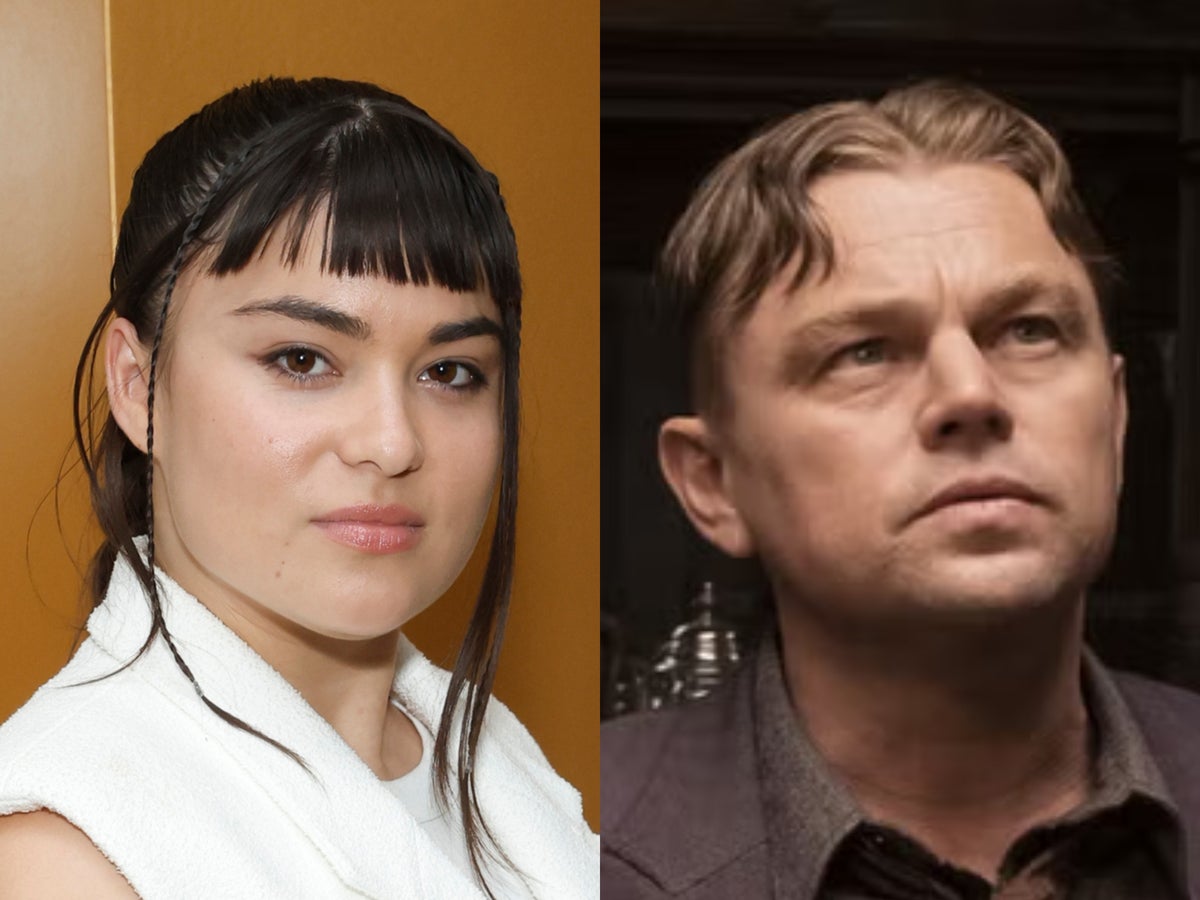
Reservation Dogs star Devery Jacobs has voiced her “strong feelings” about Martin Scorsese’s Killers of the Flower Moon.
Scorsese released his latest film, which stars Leonardo DiCaprio, Lily Gladstone, and Robert DeNiro, on 20 October.
The much-anticipated blockbuster is an adaptation of David Grann’s 2017 book, which tells the story of the Osage Native American tribe of Osage County, Oklahoma who were murdered by white people in the 1920s after oil is found on their land.
Although the film has received mostly favourable reviews since its release, Jacobs has said the film was “unrelenting and unnecessarily graphic”.
Jacobs, 30, is a Native actor best known for her role on the critically acclaimed Disney Plus series Reservation Dogs, which follows four Indigenous teenagers in rural Okalahama – the same setting as Killers of a Flower Moon.
Writing on X/Twitter on Monday (23 October), the actor said: “Being Native, watching this movie was f***ing hellfire.
“Imagine the worst atrocities committed against yr [sic] ancestors, then having to sit thru [sic] a movie explicitly filled w/ them, w/ the only respite being 30min long scenes of murderous white guys talking about/planning the killings.”
Jacobs said that “all the incredible Indigenous actors” were the “only redeeming factors of this film”.
She singled out Native actor Gladstone as an “absolute legend” for her portrayal of Mollie, adding: “Give Lily her goddamn Oscar”.
Jacobs went on to say, however, that despite the “strong” performances, “if you look proportionally, each of the Osage characters felt painfully underwritten, while the white men were given way more courtesy and depth”.
Elsewhere in the lengthy text post, Jacobs called out the non-Native directors for centring the narrative “on the white perspective and focus on Native people’s pain”.
The actor explained that she understands that the graphic violence is to “add brutal shock value that forces people to understand the real horrors that happened to his community” but said that she does not feel “these very real people were shown honour or dignity in the horrific portrayal of their deaths”.
“Contrarily, I believe that by showing more murdered Native women on screen, it normalises the violence committed against us and further dehumanises our people,” Jacobs added.
“I can’t believe it needs to be said, but Indig ppl [sic] exist beyond our grief, trauma & atrocities. Our pride for being Native, our languages, cultures, joy & love are way more interesting & humanising than showing the horrors white men inflicted on us.”
Jacobs acknowledged that it was a good thing that Osage people were having their story told, and commended Scorsese’s “technical direction” as “a sight to behold”, but said that she would have preferred to see an Osage filmmaker given the $200m (£163m) budget to tell their own story.
“RIP to Mollie, Anna, Minnie, Rita, & all the other very real Osage folks who were murdered over greed. Tobacco down for the countless Osage folks today, whose family histories have been marked by these atrocities. The pain is real & isn’t limited to the film’s 3hrs and 26 mins,” she wrote. “And a massive f*** you to the real life, white Oklahomans, who still carry and benefit from these blood-stained headrights.”
Killers of the Flower Moon is produced by Scorsese’s Sikelia Productions and DiCaprio’s Appian Way Productions. With a reported budget of $200m (£163m), the film is the most expensive to ever be shot in Oklahoma.
— (AP)
Jacobs’ criticism echoes that of Christopher Cote, who worked on the film as an Osage language consultant.
Speaking on the red carpet at the film’s Los Angeles premiere, Cote applauded Scorsese for doing a “great job representing our people” but added that he wishes the film had been told from the point of view of Mollie (the character played by Gladstone).
“Martin Scorsese, not being Osage, I think he did a great job representing our people, but this history is being told almost from the perspective of Ernest Burkhart [played by DiCaprio] and they kind of give him this conscience and kind of depict that there’s love,” said Cote.

“But when somebody conspires to murder your entire family, that’s not love. That’s not love, that’s just beyond abuse.”
He continued: “I think in the end, the question that you can be left with is: How long will you be complacent with racism? How long will you go along with something and not say something, not speak up, how long will you be complacent?
“I think that’s because this film isn’t made for an Osage audience, it was made for everybody, not Osage.
“For those that have been disenfranchised, they can relate, but for other countries that have their acts and their history of repression, this is an opportunity for them to ask themselves this question of morality, and that’s how I feel about this film.”







